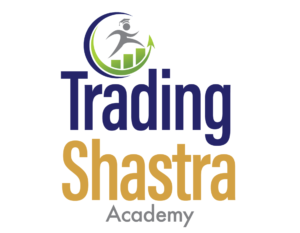Introduction
Global stock markets are once again on edge as China and Hong Kong equities slipped on Monday, driven by mounting anxiety over the looming US tariff deadline set for July 9. With additional pressure from upcoming inflation data, investors worldwide are bracing for potential volatility. For Indian retail investors, understanding these developments is crucial, as global market trends often ripple through to domestic equities.
US Tariff Deadline: The Key Trigger
The primary catalyst behind the recent weakness in China and Hong Kong stocks is the fast-approaching US tariff deadline. The United States is considering imposing new tariffs on a range of Chinese goods, a move that could escalate trade tensions between the world’s two largest economies. Historically, such trade disputes have led to market volatility, disrupted supply chains, and dampened investor sentiment across Asia and beyond.
Why Are Tariffs a Big Deal?
Tariffs increase the cost of imported goods, which can hurt exporters and manufacturers in China. This, in turn, affects corporate earnings and economic growth. For Hong Kong, a major financial hub with deep ties to mainland China, any negative impact on Chinese companies often translates into weaker market performance.
Inflation Data: Another Source of Uncertainty
Adding to the uncertainty is the upcoming release of key inflation data. Investors are closely watching these numbers, as higher-than-expected inflation could prompt central banks to tighten monetary policy. This would make borrowing more expensive and potentially slow down economic growth, further weighing on stock markets.
How Inflation Impacts Markets
Rising inflation erodes purchasing power and can lead to higher interest rates. For companies, this means increased costs and potentially lower profits. For investors, it often results in a shift away from equities to safer assets like bonds or gold.
Market Reactions: A Snapshot
On Monday, both the Shanghai Composite Index and the Hang Seng Index in Hong Kong recorded modest declines. While the drops were not dramatic, they reflect a cautious mood among investors. Trading volumes were subdued, indicating that many market participants are waiting for more clarity on both the tariff situation and inflation trends before making big moves.
Global Ripple Effects
Asian markets often set the tone for global trading sessions. Weakness in China and Hong Kong can spill over into other markets, including India. Sectors with significant export exposure or reliance on Chinese supply chains—such as technology, auto, and consumer electronics—are particularly sensitive to these developments.
What Should Indian Retail Investors Do?
Stay Informed, Not Alarmed
While global headlines can be unsettling, it’s important for Indian retail investors to keep a balanced perspective. Short-term volatility is a normal part of investing, especially in a globally connected market.
Diversify Your Portfolio
One of the best ways to manage risk is through diversification. By spreading investments across different sectors and asset classes, investors can reduce the impact of any single event on their overall portfolio.
Focus on Fundamentals
Rather than reacting to every piece of news, focus on the long-term fundamentals of the companies you invest in. Strong businesses with solid balance sheets are more likely to weather global uncertainties.
Watch for Opportunities
Periods of market weakness can also present buying opportunities for long-term investors. If quality stocks become undervalued due to temporary global concerns, it may be a good time to add them to your portfolio.
Conclusion
The recent dip in China and Hong Kong stocks underscores the interconnectedness of global financial markets. As the US tariff deadline approaches and inflation data looms, volatility may persist in the near term. For Indian retail investors, the key is to stay informed, avoid knee-jerk reactions, and maintain a disciplined investment approach. By focusing on diversification and long-term fundamentals, investors can navigate global uncertainties with greater confidence.
